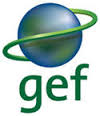Community / Land projects / Integrated management of degraded landscapes for sustainable food systems and livelihoods in Guinea Forest Reg
Integrated management of degraded landscapes for sustainable food systems and livelihoods in Guinea Forest Reg

€8731536.128
04/22 - 04/22
Voltooid
This project is part of
Implementing Organisations
Donors
Data Providers
Objectives
To promote sustainable and comprehensive food systems that are deforestation free and provide ecosystem services, with a focus on palm oil productive landscapes
Other
Note: Disbursement data provided is cumulative and covers disbursement made by the project Agency.
Target Groups
Generating socio-economic benefits is not only a very desirable output of this project but key to its sustainability. If people don’t derive tangible socio-economic benefits from more sustainable food systems and restored landscape there is little hope that these systems will be chosen on the long run. This project’s objective is to create a common vision as a guiding principle for the landscape, ensuring that all stakeholders (even the most disadvantaged usually such as women and youth) feel empowered and benefit from sustainable landscapes. The development of green and inclusive SMEs as well as the support to larger enterprises to have a positive impact on the landscape and local livelihoods, are a key pillar of the project. Looking component by component the benefits are the following: Under Component 1, at the national level, the socio-economic benefit from the project is an enabling environment that includes institutions and coordination mechanisms with a stronger capacity to plan and implement. It is expected that these enhanced capacities will lead to improved and projects in an integrated manner. The project will also support supportive policies to reach the field level. Policies on land tenure are particularly important for communities and farmers to project themselves in a long-term vision for the landscape. Thanks to awareness raising at national and local levels, over 300 people will be trained in Integrated Landscape Management planning and lead the process in their communes to apply this knowledge and develop participatory integrated land use plans. These plans will be developed following multiple criteria including socio-economic ones. Raising awareness and enabling people to be part of a landscape plan, is empowering them to be a driver of change to transform current unsustainable food systems, overusing natural resources instead of nurturing them, to ensure they will be able to deliver their benefits on the long term. As part of the Integrated Land Use Plans some areas will be designated as needing to implement sustainable agriculture intensification to promote sustainable food producing practices and responsible value chain. In order for this change from traditional agriculture to sustainable intensification to be accepted and be part of a long term plan, local communities need to derive benefits from them. Under Component 2, up to 10,000 farmers will be trained through FFS and lead farmers on sustainable agricultural intensification practices. The exact packages to be used in each community will be defined depending on local condition and culture but the options proposed in the project are all defined in a way that will benefit the economic status of the farmers. This will be through diversifying the production, introducing rotation culture (allowing to produce several crops on the same land without exhausting its resources), or ensuring that the crop can adapt to changing weather patterns preventing the farmers from the devastating effect of a lost harvest. The linkages of this project with the AGRIFARM project that is supporting the development of cooperatives, roads and market opportunities will allow the farmers to sell their produces efficiently. The project also has a strong angle to support sustainable palm oil development in view of its growth in Guinea. The production and the transformation will be supported to include more sustainable practices. 15 groups, including mostly women who are usually in charge of this task, will be empowered to improve the transformation lowering the arduousness of the work and increase the yield. In parallel, the project will promote inclusive businesses. Together with the implementation of palm oil certification this will create an emulation for sustainable products and value with a direct socio-economic impact to the local communities. Women and youth will be recognized for their work and directly benefit from it, giving new energy. Under component 3, restoration activities in the Integrated Land Use plans will be implemented to restore threatened ecosystem services and a healthy environment. Value chains depending on these restored land will be supported to create a direct economic benefit linked to restoration. As part of the project, 4 NWFPs value chains will be supported in order to bring more economic benefits and have the restored lands considered as productive. The project will also look for new financing options to sustainable the restored land that will have direct socio-economic benefits. Both national and local project stakeholders will also benefit from more robust monitoring and knowledge management systems, under Component 4, that generate information in a participative way, share it in the form adapted to the target audience and disseminate data, information and best practices relevant to restoration. This will reduce time spent on research and development and facilitate learning and sharing of innovative ideas among and between local, national and international experts (through the IP FOLUR for example) and practitioners, possibly influencing program and policy formulation at different levels. The project’s strong focus on gender and youth equity is also expected to strengthen social sustainability. With equal rights and opportunities to participate and benefit from the project, women, men and the youth can become agents of change for sustained socio-economic development in their communities.All these efforts support ILM and FLR development at the local, regional and national levels giving both the tools to implement it and the incentives to keep doing it over the long term. Global Environment Benefits are reached through land degradation reduction, sustainable agriculture and forest management, improved biodiversity habitat connectivity and improved wellbeing.




